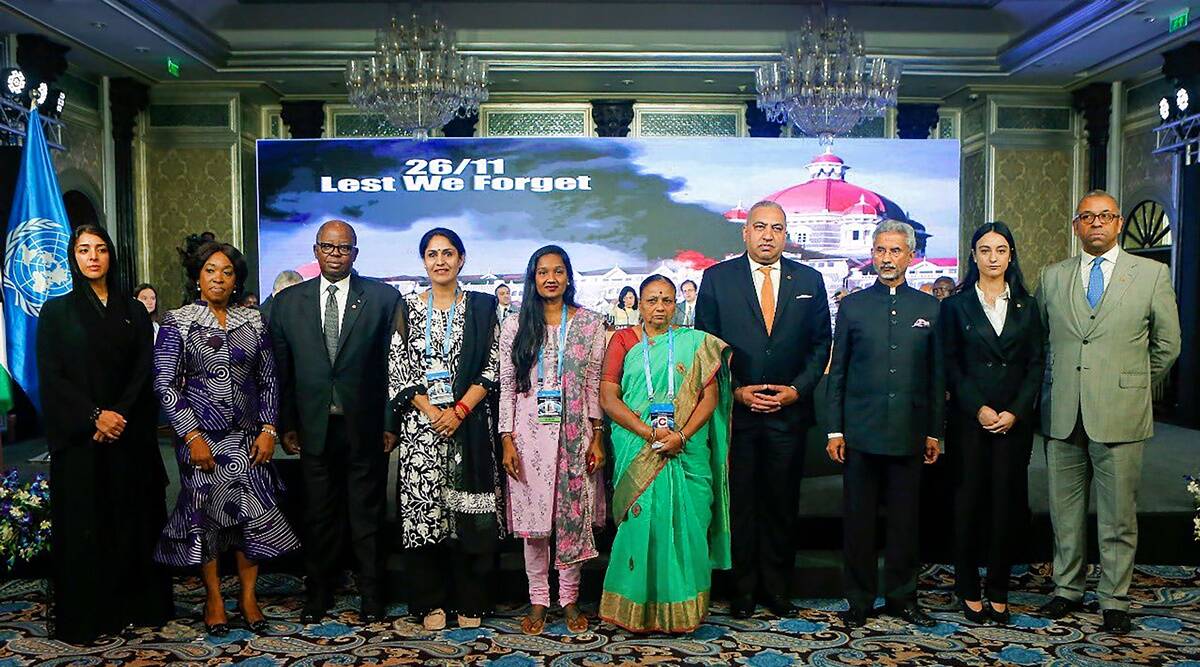The Delhi Declaration on Saturday mentioned “human rights” at least eight times and “fundamental freedoms” twice. It called for anchoring the use of counter-terrorism technologies within the human rights framework.

At least five delegates at the UNSC Counter-Terrorism Committee meeting — including the US, the UK and the UN Human Rights envoy — Saturday brought up the issue of human rights in the context of the use of emerging technologies against terrorism. At the meeting, the UN Human Rights envoy, Ireland and Norway were among those who flagged the issue of surveillance and privacy and how these could be compromised under the garb of counter-terrorism. The US, meanwhile, condemned the shutting down of communication services through the “excuse” of counter-terrorism.
The Delhi Declaration on Saturday mentioned “human rights” at least eight times and “fundamental freedoms” twice. It called for anchoring the use of counter-terrorism technologies within the human rights framework. “…the Member States must ensure that any measures taken to counter terrorism, including the use of new and emerging technologies for terrorist purposes, respect the Charter of the United Nations and comply with their obligations under international law, including international human rights law, international humanitarian law and international refugee law, as applicable,” a key paragraph said.
At another point, the declaration said it recognises the efforts of the UN-affiliated Tech Against Terrorism initiative to foster collaboration with representatives of the technology industry, civil society, academia and government to disrupt terrorists’ ability to use the internet in furtherance of terrorist purposes, “while also respecting human rights and fundamental freedoms”.
Scott Campbell, Human Rights and Digital Technology Team Leader at the UN Office of the High Commissioner on Human Rights, raised the issue of “surveillance” and “spyware” tools being used by law-enforcement authorities against dissenting voices in the name of countering terrorism.
“While often justified as having been deployed to combat terrorism and crime, such spyware tools have frequently been used for illegitimate and much broader aims, including to clamp down on critical or dissenting views and on those who express them”, Campbell said. He said they have called for a moratorium on their use and marketing until adequate safeguards are developed and put in place.
“Countering the use of new and emerging technologies to commit acts of terrorism needs to be anchored in human rights law. This is essential not to because of our commitments to uphold rights as a legal and ethical imperative. But because respecting rights and countering terrorism is fundamental to ensuring sustainable and effective efforts to protect our security approaches. To cross these important lines not only violate the law, they undermine efforts to combat terrorism by eroding the trust of the community that are essential to successful prevention and response,” Campbell said. “Demands to filter and block content on social media have been shown to frequently affect minorities and journalists in disproportionate ways.”
Campbell also said that States’ methods to fight terrorism have often been used over vague definitions of terrorism or terrorist acts, and at times have granted extensive executive powers without sufficient safeguard against abuse.

